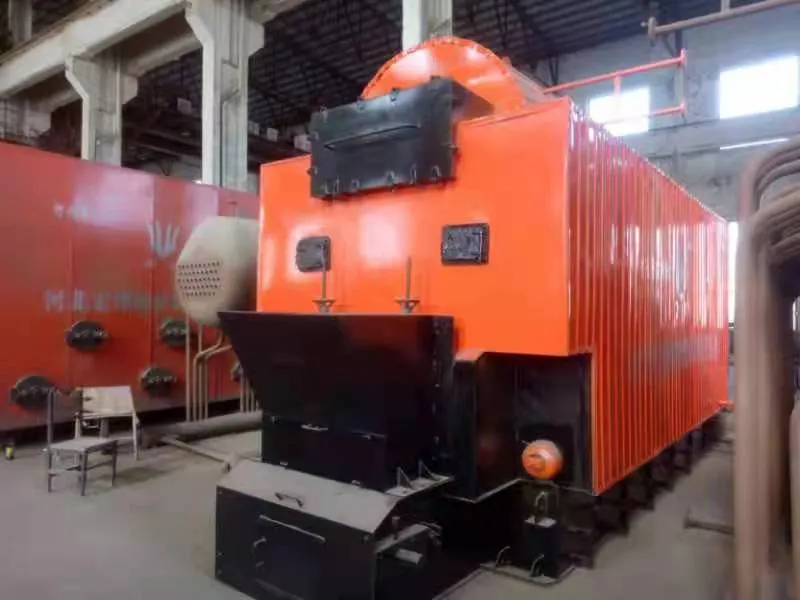
Nov . 15, 2024 22:21 Back to list
hot water boiler temperature
Understanding Hot Water Boiler Temperature Key Considerations for Efficiency and Safety
Hot water boilers play a critical role in heating systems, providing warm water for domestic use, space heating, or even industrial processes. Central to the effective operation of these systems is the temperature of the water being heated. Understanding the implications of hot water boiler temperature is essential for optimizing performance, ensuring safety, and enhancing energy efficiency.
Optimal Temperature Settings
The ideal temperature setting for a hot water boiler often hovers around 140°F to 160°F (60°C to 71°C) for residential applications. This range is typically sufficient for heating water for domestic purposes such as washing, bathing, and space heating. Operating at this temperature not only keeps energy costs manageable but also minimizes the risk of scalding. Higher temperatures may be required for certain industrial applications but should be approached with caution due to the associated risks.
Safety Concerns
One of the primary concerns with high water temperatures in boilers is the potential for scalding. Water that exceeds 160°F (71°C) can cause burns in a matter of seconds, making it critical for homeowners and facility managers to monitor their hot water systems closely. Installing thermostatic mixing valves can help mitigate this risk by blending hot water with cold water to achieve a safer output temperature.
Moreover, maintaining proper boiler temperature is essential to prevent overheating, which can lead to system failures. Regular maintenance checks should include inspections of temperature controls and safety relief valves to ensure they function correctly. Any fluctuations beyond safe operating temperatures can jeopardize the integrity of the system and pose safety hazards.
Energy Efficiency
hot water boiler temperature

Operating at the correct temperature not only ensures safety but also enhances energy efficiency. When boilers are set too high, they consume more fuel than necessary, resulting in wasted energy and increased operational costs. Conversely, setting the temperature too low can lead to issues such as insufficient heating for domestic or commercial needs.
To optimize boiler efficiency, regular tuning and adjustments should be made. This includes calibrating the thermostat, cleaning the boiler to ensure peak performance, and checking for leaks or other issues that could impact efficiency. Manufacturers’ guidelines should be followed to set the temperature appropriately based on usage patterns and requirements.
Seasonal Adjustments
Temperature settings may need to be adjusted seasonally. During colder months, a higher temperature may be necessary to ensure adequate heating throughout the home or facility. Conversely, in milder months, lowering the temperature can reduce energy consumption without sacrificing comfort. Implementing a programmable thermostat can automate these adjustments, leading to smarter energy management.
The Role of Insulation
Insulation also plays a vital role in maintaining hot water boiler temperature. Properly insulating pipes and the boiler itself can prevent heat loss, thereby allowing the system to operate more efficiently. This not only helps maintain the desired temperature but also reduces the work the boiler has to do, leading to lower energy consumption and longer equipment life.
Conclusion
In conclusion, understanding hot water boiler temperature is fundamental to ensuring the safety, efficiency, and longevity of the heating system. By adhering to optimal temperature ranges, implementing safety measures, and maintaining regular inspections, homeowners and facility managers can protect against hazards while maximizing energy savings. A proactive approach to managing water temperatures, along with appropriate insulation and seasonal adjustments, can lead to considerable benefits, allowing hot water boilers to perform effectively while keeping energy costs under control. As technology advances, newer systems will continue to improve in efficiency and safety, making it essential to stay informed and adapt to changes in best practices.
-
High-Efficiency Commercial Oil Fired Steam Boiler for Industry
NewsJul.30,2025
-
High-Efficiency Biomass Fired Thermal Oil Boiler Solutions
NewsJul.30,2025
-
High Efficiency Gas Fired Thermal Oil Boiler for Industrial Heating
NewsJul.29,2025
-
High-Efficiency Gas Fired Hot Water Boiler for Sale – Reliable & Affordable
NewsJul.29,2025
-
High Efficiency Biomass Fired Hot Water Boiler for Industrial and Commercial Use
NewsJul.29,2025
-
High-Efficiency Biomass Fired Hot Water Boiler for Industrial Use
NewsJul.28,2025
Related PRODUCTS






















